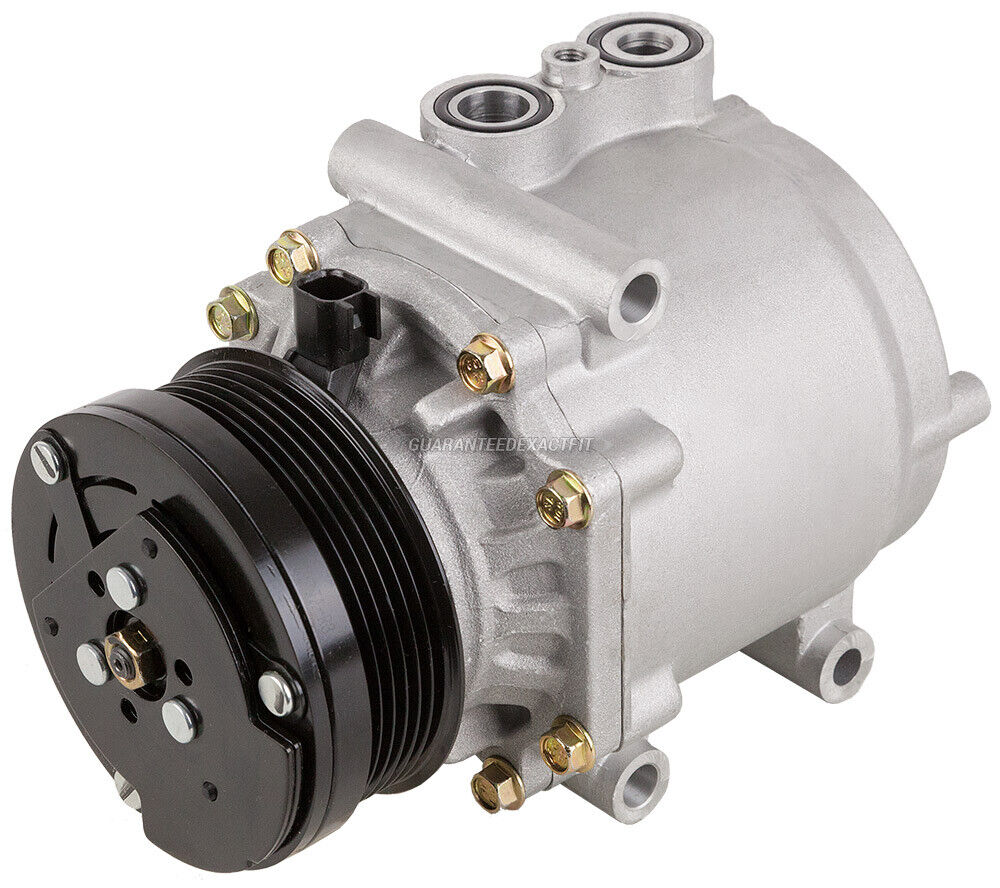GradeAutoPart.com can help you find Used A/C Compressor fast and easy. All used parts are inspected before being sold. Anything mechanical, is tested for function. We visually inspect for any cracks, leaks, damage, or issues before we put the parts in our inventory system. Our inventory of Used A/C Compressor is updated daily to insure fresh and up to date information for our customers.
What is A/C Compressor
A car AC compressor is a device located in the engine compartment of a vehicle that is responsible for compressing and circulating refrigerant gas in the air conditioning system.
When the AC system is turned on, the compressor draws in low-pressure refrigerant gas from the evaporator, compresses it, and then pumps it to the condenser.
The compressed gas becomes hot as a result of the compression process, and the heat is dissipated as the gas flows through the condenser. The cooled and compressed refrigerant then flows back into the vehicle’s cabin, where it evaporates and cools the air that is blown into the car by the AC system.
This process is repeated continuously while the AC system is running to maintain a cool and comfortable temperature inside the vehicle.
Why The Town Car A/C Compressor Is Important
The car AC (air conditioning) compressor is an important component of the vehicle’s HVAC (heating, ventilation, and air conditioning) system. Its primary function is to compress and circulate refrigerant gas, which is responsible for cooling and dehumidifying the air inside the car’s cabin.
Without the compressor, the refrigerant gas would not be able to circulate through the system, and the air conditioner would not be able to cool the car’s interior. This would make driving in hot and humid weather uncomfortable, and could even be dangerous in extreme heat.
Additionally, the car AC compressor plays a crucial role in maintaining the proper pressure levels in the HVAC system. If the compressor fails or malfunctions, it can cause the system to lose pressure, leading to a decrease in cooling efficiency and potentially causing other components of the HVAC system to fail.

